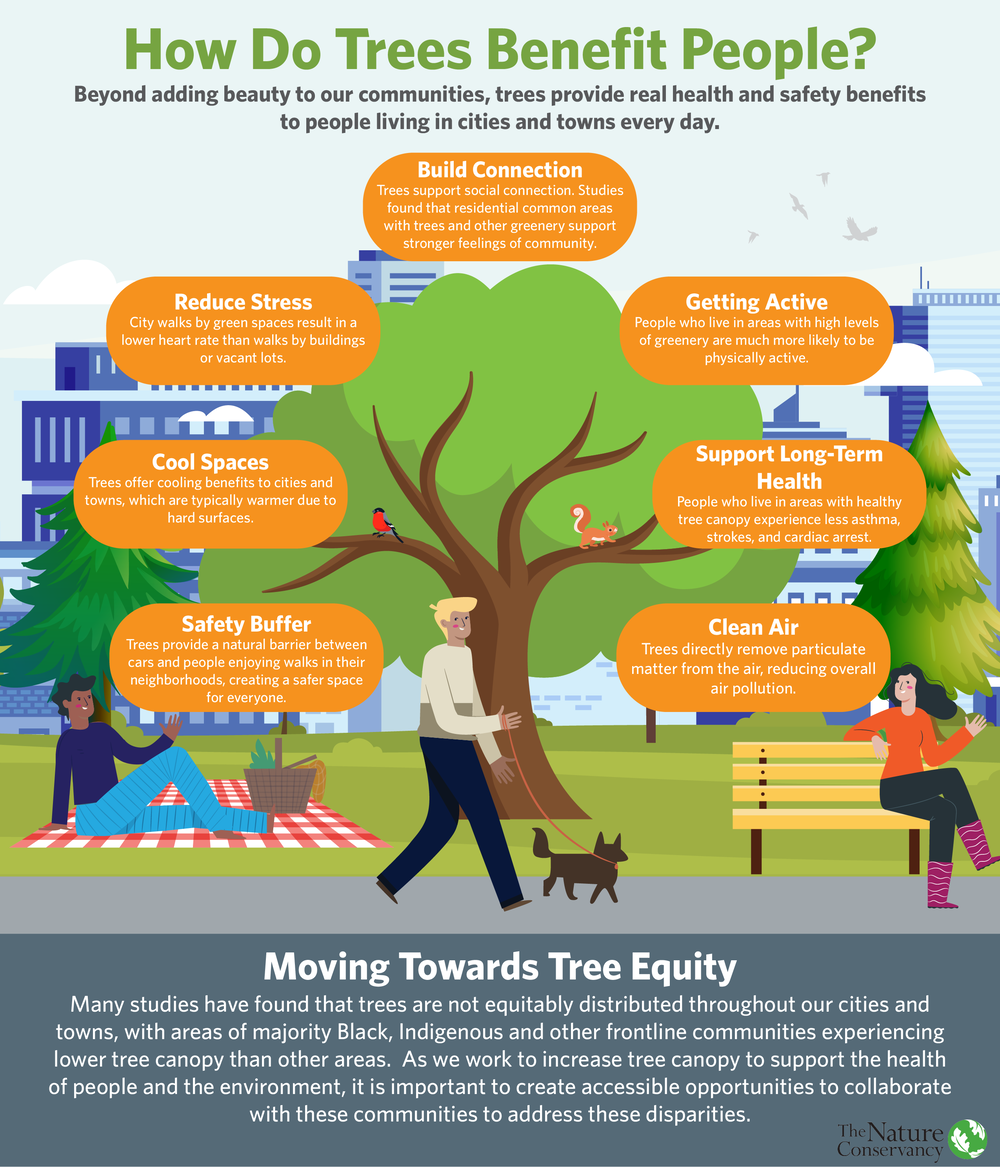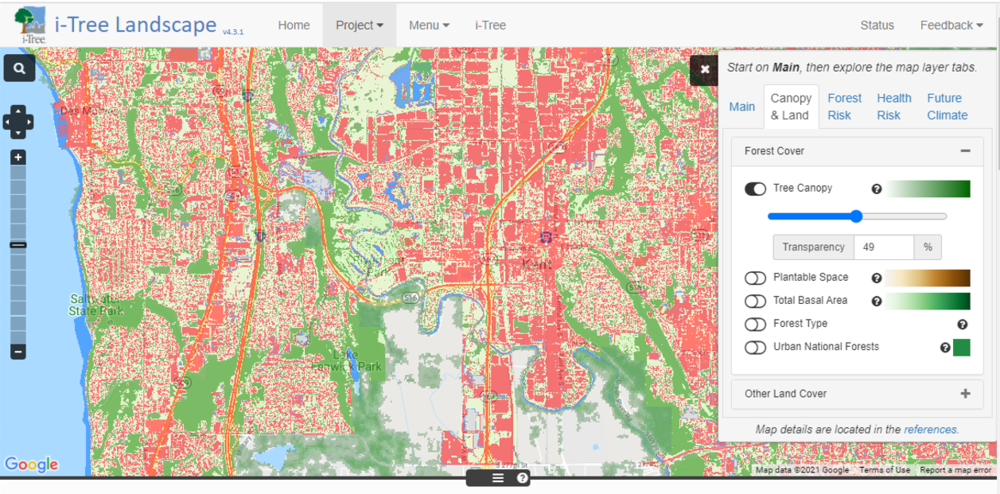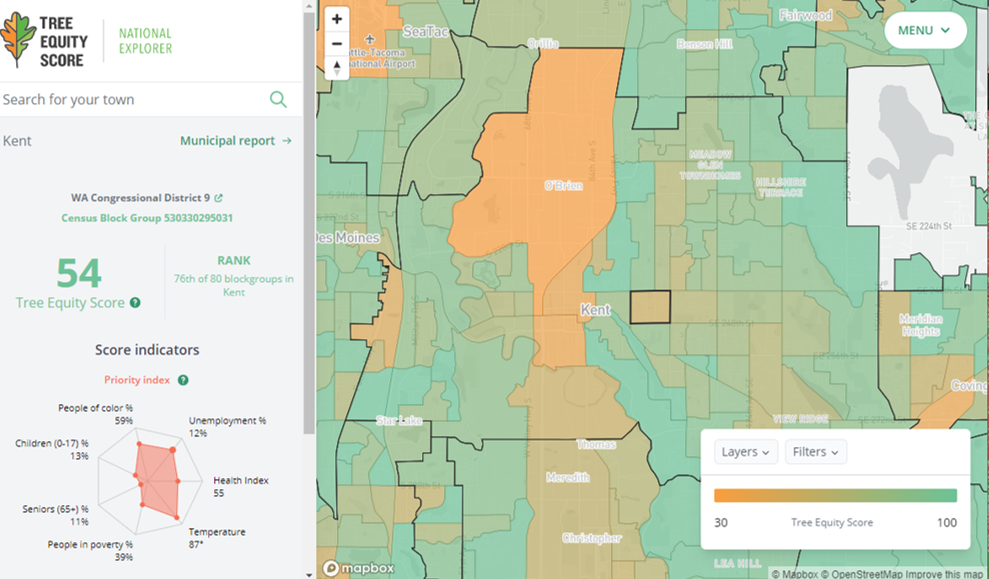Within our cities and towns, the trees that line our streets, fill our parks and shade our streams provide people and nature with a multitude of benefits—seen and unseen. These trees help clean the water flowing into streams, rivers and Puget Sound, help purify the air we breathe, beautify our neighborhoods—and so much more.

As the Central Puget Sound Region’s cities and towns continue to grow, identifying opportunities to invest in high-impact tree planting and preservation will be important to ensure that people continue to receive these benefits. The Central Puget Sound Tree Canopy Assessment project is aimed at providing the data and tools for municipalities, organizations and tree advocates to be able to prioritize tree planting and preservation to support the health of humans and nature.
Funding by the Washington State Department of Natural Resources supported The Nature Conservancy, Davey Resource Group, American Forests and City Forest Credits to collaborate in developing a suite of resources—including a high-resolution urban canopy assessment for the Central Puget Sound Region.
Now, anyone can access and explore these resources—as well as engage with the partners behind the effort to learn more. Here is a quick look at the tools and opportunities for engagement:
iTree Landscape: iTree Landscape is host to the high-resolution urban tree canopy data within the urban growth areas of Pierce, King and Snohomish counties. Within the tool, you can explore tree canopy, land cover and information about the ecosystem benefits provided by the tree canopy. The tool helps you compare different areas as well as highlight specific ecosystem values to help prioritize urban tree canopy efforts. Davey Resource Group led a webinar focused on the function and uses of these data rich tool. View the recording.
A look at the high-resolution tree canopy cover of Kent, Wash. Users can zoom in for even more detail Source: itreelandscape.com
Tree Equity Score: Though trees in our cities and towns produce multiple benefits for people and nature, these benefits are not equitably distributed and accessible. The Tree Equity Score, developed by American Forests, explores the alignment between tree canopy, surface temperature, income, employment, race, age and health. The tool has incorporated the high-resolution tree canopy data produced by Davey Resource Group for the Central Puget Sound Region’s urban areas. American Forests provided an interactive demonstration of the tool for to support prioritization and planning through a social equity lens. View the recording.
A look at the Tree Equity Score map focused on Kent, Wash. By selecting a Census Block group, you can pull up additional information about the score. Source: treeequityscore.org
Climate Tree Species Guide: Our region will continue to experience increased impacts from climate change, and it’s important that we are planting with these impacts in mind. The Northern Institute of Applied Climate Science developed a tree species selection guide based on anticipated climate change impacts in the Puget Sound Region. NIACS shared more about the development of this guide through a webinar (View the recording). The final guide will be available Fall 2022.
City Forest Credits: As urban areas seek to plant and preserve trees, a consistent barrier is supporting the long-term maintenance of these trees. City Forest Credits is a national non-profit that is providing new tools for private-sector dollars to support planting and protecting trees in urban areas. During the webinar, City Forest Credits explored how urban tree planting and preservation efforts can generate carbon credits. View the recording.
If you have questions or would like to more directly engage with this project, please reach out to Hannah Kett, Cities Program Manager at The Nature Conservancy: hannah.kett@tnc.org
